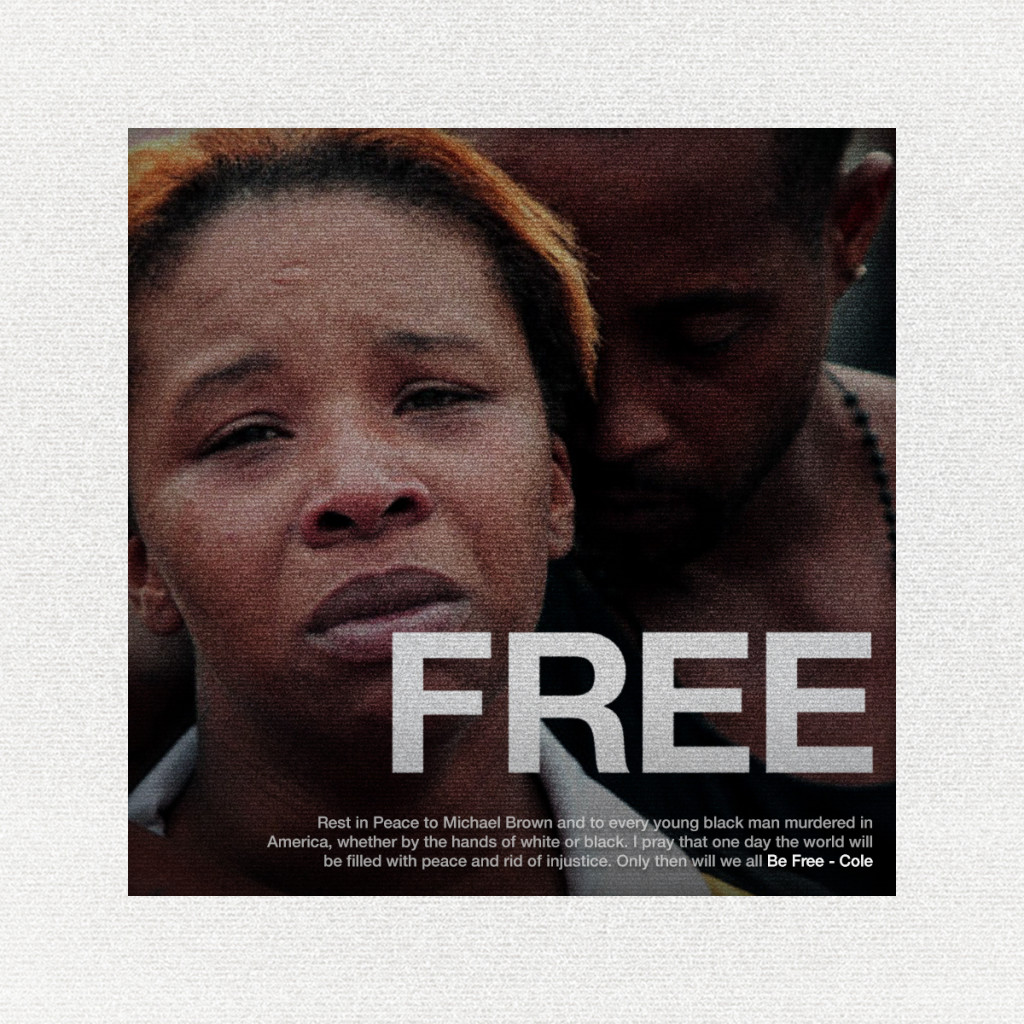
“We become distracted. We become numb. I became numb. But not anymore. That coulda been me, easily. It could have been my best friend.” – J. Cole, in a blog post accompanying the release of Be Free.
From Ferguson, Missouri, shocking images of the police response to protesters there have shown to many the true extent and the reality of the militarization of our domestic police forces. Then came the news this morning that Gov. Jay Nixon has called in the National Guard, and Amnesty International, in an unprecedented move, is sending in human rights monitors.
Civilians and members of the media who have tried to document the developments following the shooting of unarmed teenager Michael Brown on August 9th have been detained. Palestinians from Gaza have tweeted advice to Ferguson residents on how to handle tear gas attacks, and memes comparing Ferguson to Iraq and Afghanistan have circulated on the internet as this US city begins to resemble war zones in other parts of the world [added: see John Oliver’s brilliant piece here]. Ferguson, Missouri does now appear to exemplify our militarization of the world having come home to roost.
Many around the county are following the developments in Missouri online, trying to express their solidarity however they can. Voices from the hip-hop community have stood their ground on social justice and free expression issues many time before, and are doing so again for the victims and protesters in Ferguson.
The 2012 shooting of Trayvon Martin had likewise prompted a strong reaction from the hip-hop community, and in 2014, many of the same artists are using their voices in a new way – the real-time protest song.
Released to the world on Friday, at the time of writing J. Cole’s “Be Free” has been played nearly 750,000 times on SoundCloud, written quickly before wounds had time to heal. The raw emotion of the track has reverberated around the internet and the reaction has been almost as immediate as the song’s creation.
Cole’s plea, “all we want to do is take the chains off,” has touched a deeply felt and widely held sentiment.
Atlanta-based rapper Young Jeezy posted a photo to social media, below, of himself standing in a raided storefront in Ferguson, calling for mass, peaceful demonstration, with the caption:
“The answer is not tearing down our own neighborhoods and communities, the answer is goin to the source of the problem in numbers. So many numbers that they know they don’t have a chance. We want justice not chaos!”
Jeezy’s commentary echoed his thoughts in a 2012 interview on the Trayvon Martin shooting: “Nobody’s child should be shot in cold blood for anything, especially if they didn’t harm or hurt another individual.”
We spoke just recently on this blog about hip-hop a as “a voice for the voiceless” in Latin America, and artists like J. Cole and Jeezy are showing the potential for socially conscious music to once again make that voice reach US and worldwide audiences in what was, in Cole’s case, only a matter of hours.
Cole’s song is a call to not change the subject on difficult issues, to not look away anymore, and the reaction to his music shows that socially-conscious discourse of art and activism is not just a thing of the past in America.
